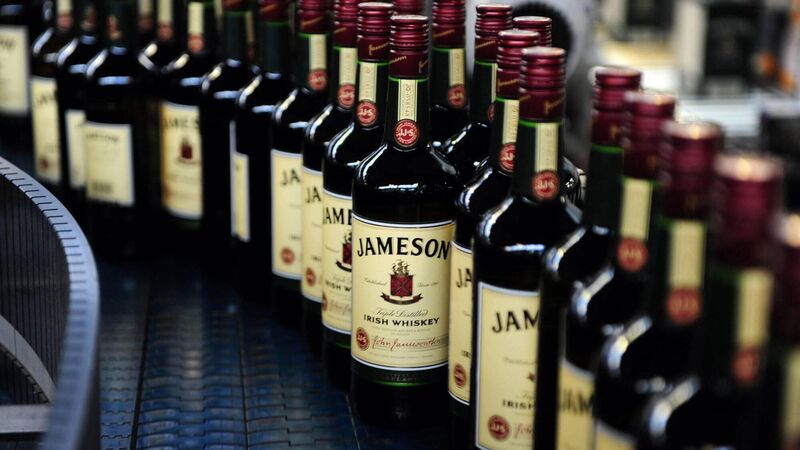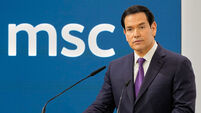Ireland's small, open economy is about to be put to the test

Forty per cent of Irish whiskey exports go to the US and they could become a target in Trump's next round of tariffs. Picture: Aidan Crawley/Bloomberg
US president Donald Trump has moved ahead with tariffs on Canada, Mexico, and China, so it is now clear a wider trade war has commenced and the EU and Ireland are next.
As the tariff threats have become a reality, there is a scramble by countries to find out how their exports will be impacted. When it comes to trade with the US, Irish exports are dominated by pharmaceuticals. In the first 11 months of 2024, we exported €67bn in products to the US. According to the CSO, €41.1bn of those exports were medicinal and pharmaceutical products.














